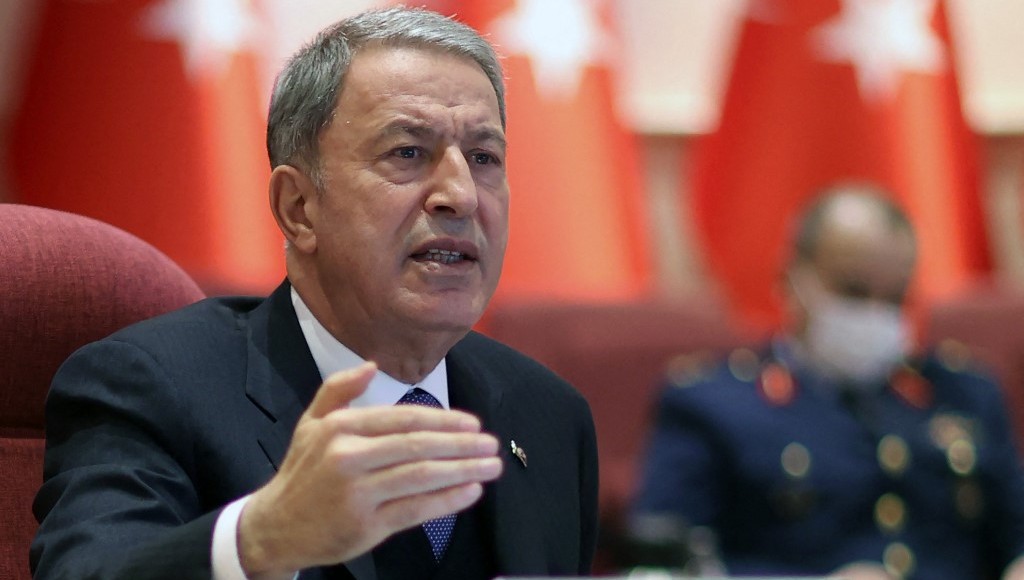In remarks that signaled a softening in Turkey’s insistence on making use of a Russian air defense system despite objections from its NATO allies, Defense Minister Hulusi Akar has said Turkey could keep the system for rare use like Greece, which has a Russian air defense system on Crete, and not use it frequently.
Akar’s remarks came in an interview published in the Hürriyet daily on Tuesday.
Despite warnings from the United States and other NATO allies, Turkish President Recep Tayyip Erdoğan brokered a deal worth $2.5 billion with Russian President Vladimir Putin for the S-400 missile system in 2017.
The S-400, a mobile surface-to-air missile system, is said to pose a risk to the NATO alliance as well as the F-35, America’s most expensive weapons platform.
In the interview Akar said unlike the US, NATO-member European countries are not always bringing up the issue of the S-400 missile system in their talks with Turkey, and he is of the belief that just like Greece uses its Russian S-300 missile system, Turkey can do the same.
When asked, “Could the S-300s in Crete be a model for Turkey to use to the S-400s?” Akar said: “Yes, it can. This issue is not limited only to the S-300s in Crete. Many European countries that were earlier members of the Warsaw Pact still own weapons systems from the Soviet era. These weapons can be retained in NATO. We mentioned this before. We are open to negotiations about the use of the same model they have in Crete.”
The S-300 system was initially purchased by Cyprus in the mid-1990s and was later moved to the Greek island of Crete following objections from Turkey.
In 2013 the Greek armed forces test-fired the S-300 system for the first time since it was procured by Cyprus 14 years earlier.
Akar said the talks on the adoption of the “Crete model” for Turkey could take place under auspices of the NATO, adding that NATO Secretary-General Jens Stoltenberg had already welcomed the idea. However, Akar said the US had objected to the establishment of a working group with Turkey to discuss the potential effects of the S-400 on NATO’s defense systems.
Washington says the S-400s pose a threat to its F-35 fighter jets and NATO’s broader defense systems. Turkey rejects this and says the S-400s will not be integrated into NATO.
Akar also said the US objections to the S-400 missile system are based on commercial concerns because it doesn’t want other countries to follow Turkey in purchasing the Russian air defense system.
When asked about Greece’s rare use of the S-300 system as it most of the time keeps the system’s components in warehouses in Crete, Akar said: “We would not always use them. Such systems are used when there is a threat. We will decide about that.”
Akar’s remarks, which apparently aim to reduce tensions over Turkey’s purchase of the S-400 system, came after Washington imposed sanctions in December on Turkey’s military procurement agency as punishment for its purchase of the Russian-made missile defense system under the Countering America’s Adversaries Through Sanctions Act, or CAATSA, which mandates penalties for transactions deemed harmful to US interests.
Turkey’s Presidency of the Defense Industry (SSB), its chief İsmail Demir and three other officials were targeted by the sanctions, which include a ban on all US export licenses and authorizations to SSB as well as asset freezes and visa restrictions on Demir and the other individuals.
The US had also previously removed Turkey from its F-35 stealth fighter development and training program over the S-400 purchase.


